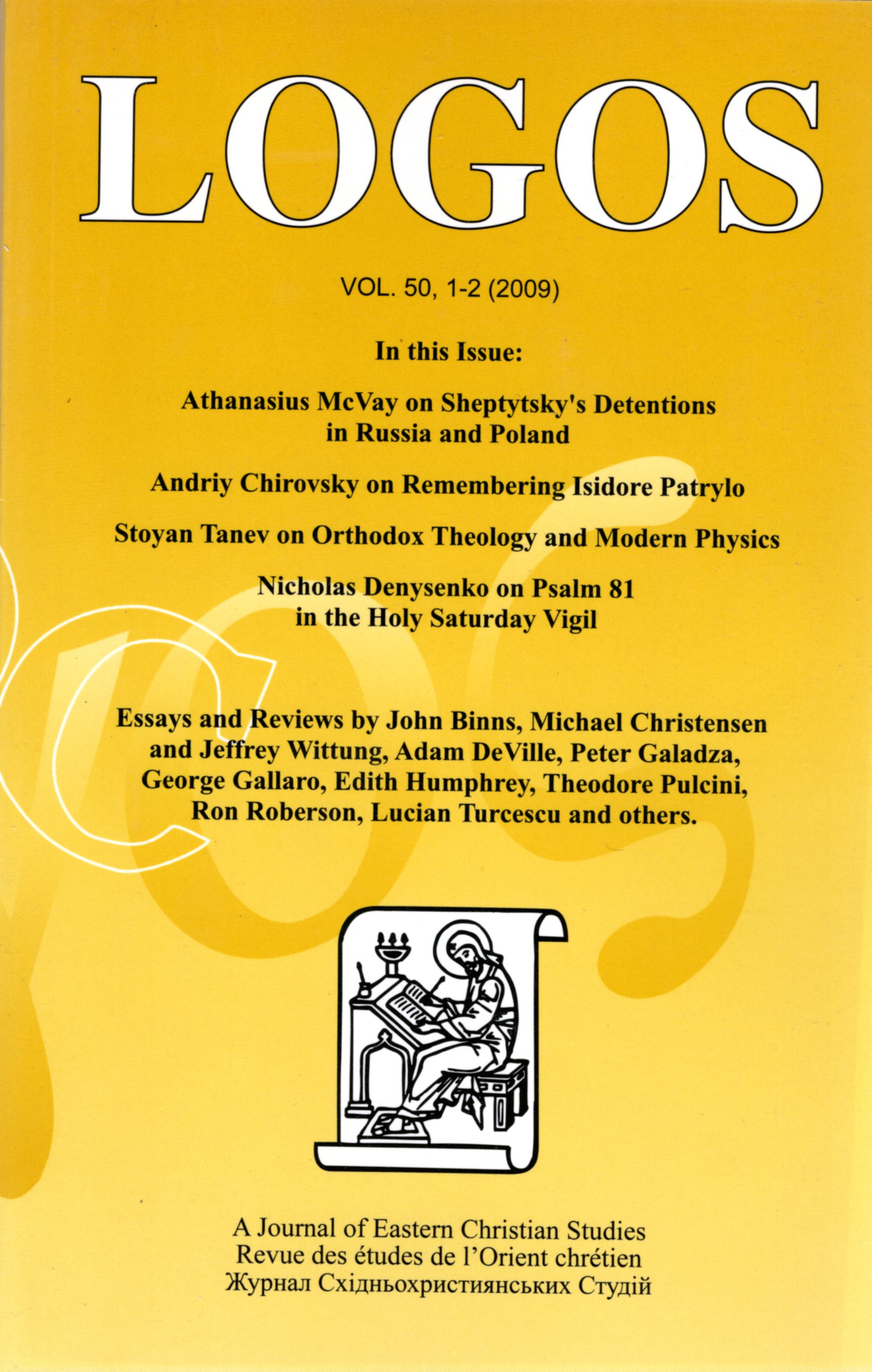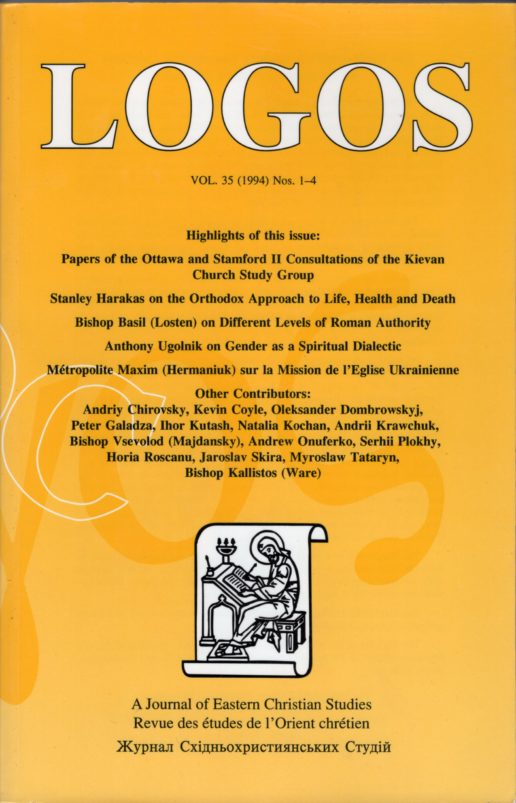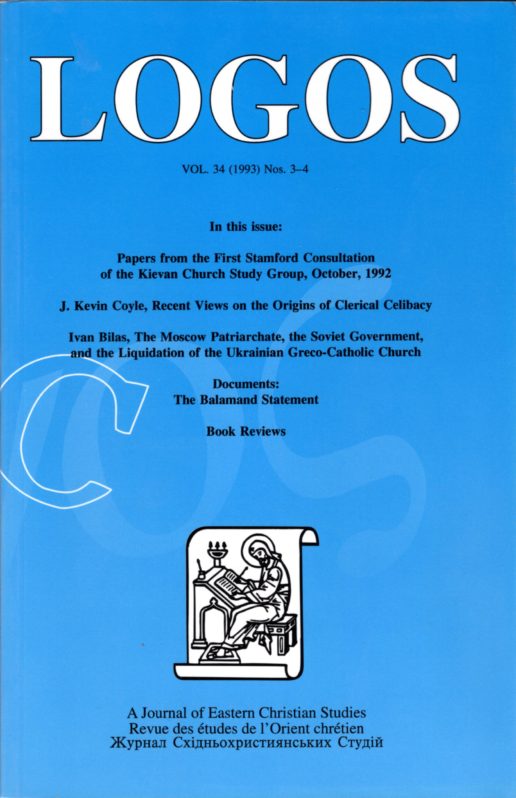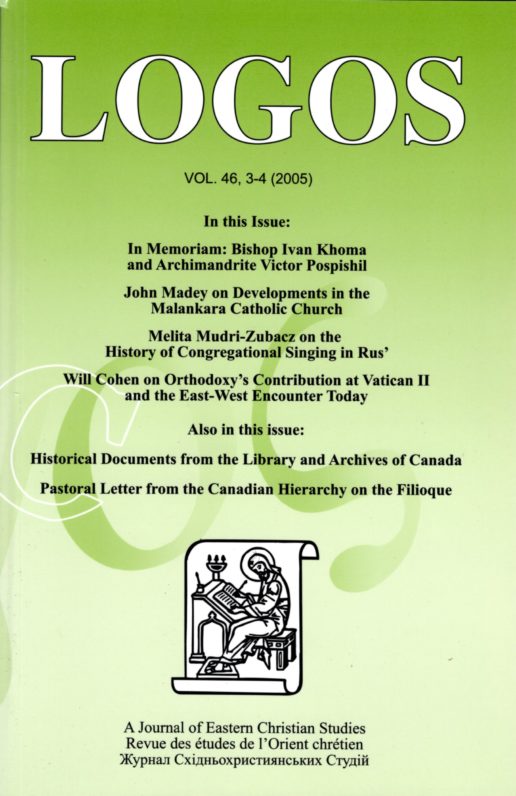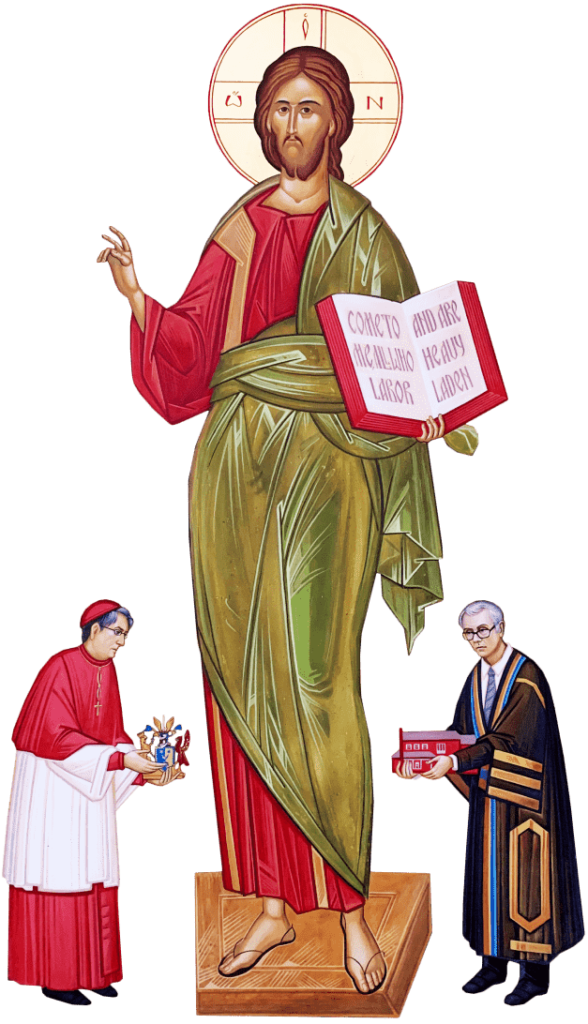Description
Table of Contents (PDF)
Editorial
Isidore Patrylo OSBM (1919–2008): Basilian Protoarchimandrite, Church Historian, and Bibliographer
Andriy Chirovsky (1)
Twenty-Five Years Back and Fifty Years Forward
Andriy Chirovsky (7)
Articles
A Prisoner for His People’s Faith: Metropolitan Andrei Sheptytsky’s Detentions under Russia and Poland (PDF Open Access)
Athanasius D. McVay (13)
Abstract
Metropolitan Andrei Sheptytsky (1865–1944) was imprisoned no fewer than three times because of his defence of the faith of his Ukrainian people. Based on correspondence found in the Vatican Archives, this article reveals hitherto unknown details of the metropolitan’s imprisonments. It also sheds light on the reasons why Sheptytsky was imprisoned so many times and chronicles the vigorous interventions of the Roman Apostolic See to defend the metropolitan and to secure his release and return to his archeparchy of Lviv. His personal background, spiritual journey, and persecution, closely parallel aspects of the history of the Ukrainian nation. He underwent his own process of national awakening, which resulted in his return to the Byzantine-Ruthenian rite of his ancestors. Becoming Byzantine yet remaining Catholic placed him directly at odds with the political-religious ideologies of both the Russian Empire and the newborn Polish Republic, especially since he had assumed the mantle of spiritual leadership over the Galician Ukrainians. Sheptytsky was deported to Siberia in 1914 as an obstacle to the tsarist plan to absorb the Ukrainian Greco-Catholics into the Russian Orthodox Church. In 1919, he was placed under house arrest, this time by Catholic Poland, and interned three years later by the same government when he attempted to return to Lviv.
Резюме
Митрополит Андрей Шептицький (1865—1944) бував тричі позбавлений волі за те, що відстоював віру. Ця стаття базується на кореспонденції, знайденій у Ватиканських архівах і відкриває дотепер невідомі деталі його ув’язнень у Росії та Польщі. Нарис проливає світло на причини частих ув’язнень митрополита а також хрожмпзує активні втручання Риму на ного захист та з метою якнайшвидшого звільнення та повернення владики до Львівської архієпархії. Походження Андрея Шептицького, його духовний шлях а також переслідування Росією та Польщею значною мірою перегукуються з історичними аспектами становлення української нації. Нарис аналізує паралелі між життям А. Шептицького а процесом національного пробудження коли народ, якого називали русинами усвідомлює свою національну тотожність, відмінну від польської та російської. І так само як український національний рух розпочався під проводом церковних діячів, національне пробудження Шептицького привело його до того, що він сам став ієромонахом і церковним діячем. Прийняття митрополитом візантійської традиції залишаючись при цьому католиком поставило його в непрості взаємини із політично-церковними ідеологіями як Росії так і Польщі.
Psalm 81: Announcing the Resurrection on Holy Saturday (PDF sample)
Nicholas Denysenko (55)
Abstract
In the Byzantine vesperal liturgy of Holy Saturday, an unusual occurrence takes place when the Alleluia, with its customary psalm verses, is not sung before the gospel, but is replaced by a unique psalm responsorial unit beginning with Psalm 81:8, “Arise, O God, and judge the earth, for to You belong all nations.” This occurs only on Holy Saturday, and suggests that the novel responsorial psalm unit carries some liturgical or theological significance which explains the displacement of the customary Alleluia. This article presents the history of the Holy Saturday Psalm 81 responsorial unit by examining its occurrence in select cathedral and monastic liturgical sources of Constantinople and Jerusalem/Palestine from the fifth through the fourteenth centuries. Following an examination of the evidence, the article articulates the theological significance of the proclamation of Psalm 81 at the Holy Saturday vesperal liturgy, revealing the meaning of Alleluia as a responsorial refrain, the relationship between it and the gospel lection, and the liturgical context of Psalm 81 throughout its development in the history of the offices of Holy Saturday and Pascha.
Резюме
Темою цього дослідження є богослужбова особливість літургії св. Василія Великого з вечірнею у Велику Суботу, протягом якої звичайне перед євангелієм “Алилуя” разом із традиційними віршами псалмів замінене на унікальний літургійний елемент, що розпочинається 8 віршем 81 псалма: “Воскресни Боже судити землю, бо ти народами всіма володієш.” Така зміна відбувається виключно в богослужінні Великої Суботи і тому наводить на думку про її особливе богословське значення. Цей нарис пропонує історію постання літургійного елемента – співання 81 псалма – на підставі вивчення окремих катедральних та монастирських літургійних текстів Константинополя та Єрусалима/Палестини V-XIV століть. Базуючись на аналізі вищезгаданих текстів, цей нарис розвиває богословське значення проголошення 81 псалма протягом літургії св. Василія Великого з вечірнею у Велику Суботу, пояснюючи також значення того ж “Алилуя” якого воно заступає саме в цьому контексті, співвідношення між ним та євангельським читанням а також літургійний контекст 81 псалма в історичному розвитку богослужбових текстів Великої Суботи та Пасхи.
Essence and Energy: An Exploration in Orthodox Theology and Physics (PDF sample)
Stoyan Tanev (89)
Abstract
This essay provides a parallel study of the meaning of the term “energy” in Orthodox theology (particularly in such figures as John Damascene, Maximus the Confessor, and Gregory Palamas) and physics (particularly in the work of Niels Bohr and Albert Einstein, as well as Max Planck and Max Born) by exploring the way this term is used in these two quite different fields of scholarly endeavor. It does not provide clear-cut definitions and does not pretend to have produced an exhaustive synthesis. Its intention, rather, is to continue building bridges between Orthodox theology and physics on the foundation of existing works and established knowledge. The essay starts with a discussion of the methodological grounds for the parallel exploration of the concept of energy in theology and physics by means of Bernard Lonergan’s “analogical isomorphism,” whose approach allows for bringing forth the similarities of the relationships between essence and energy in both cases and not of the concepts themselves. The author’s comparative analysis brings a number of common themes to the surface, and concludes by summarizing the fourteen observations emerging from, and still needing further refinement in, the science-theology dialogue.
Резюме
Цей нарис пропонує паралельне дослідження значення терміну “енергія” у православному богословії та фізиці як науці. Базований на авторитетних текстах і загальноприйнятих принципах, цей нарис вказує на емпіричні та епіс-темолопчні аспекти віри і науки а також аналізує їхні методологічні основи. Йдеться зокрема про богословські поняття Бернарда Лонерґана, Варлаама Калабрійського та Григорія Палами а також доробки з фізики Нільса Бора та Альберта Ейнштейна. Огляд творів згаданих авторів породжує цілий ряд спільних тем: взаємозв’язок між невидимою дійсністю та її видимими проявами; протиставлення між реалістичним та анти-реалістичним баченням Бога та світу; різниця між класичною та квантовою на противагу божественній та гуманістичній епістемології; взаємовідношення між цілим та його складовими частинами в межах божественної та квантової дійсності; іпостатична природа усіх енергетичних проявів; небезпека ігнорування епісте-мологічних аспектів енергії за рахунок підходу який зосе-реджуться на здебільша на дії; необхідність виходу поза межі законів класичної логіки та прийняття нових логічних систем; необхідність застосування антиномічної термінології для змалювання взаємодоповнюючих аспектів дійсності і нарешті необхідність давати собі раду з обмеженістю наших знань вбачаючи в ній тонкий реалізм, що віддзеркалює природу божественної та квантової дійсностей.
Notes, Essays, Lectures
New Works in Ecclesiology: A Review Essay (PDF sample)
Adam A.J. DeVille (155)
Book Reviews
John Anthony McGuckin, The Orthodox Church: An Introduction to its History, Doctrine and Spiritual Culture
John Binns (189)
Kyriacos C. Markides, Gifts of the Desert: The Forgotten Path of Christian Spirituality
Suzette Philips (196)
Lewis J. Patsavos, A Noble Task: Entry into the Clergy in the First Five Centuries
George Dimitry Gallaro (199)
His All Holiness Ecumenical Patriarch Bartholomew, Encountering the Mystery: Understanding Orthodox Christianity Today
William C. Mills (201)
Ignatius Brianchaninov, On the Prayer of Jesus
Suzette Philips (204)
Christiane Timmerman, Dirk Hutsebaut, Sara Mels, Walter Nonneman and Walter Van Herck, eds., Faith-Based Radicalism: Christianity, Islam and Judaism between Constructive Activism and Destructive Fanaticism
Theodore Pulcini (207)
Lavinia Stan and Lucian Turcescu, Religion and Politics in Post-Communist Romania
Ronald G. Roberson (214)
Douglas H. Knight, ed., The Theology of John Zizioulas: Personhood and the Church
Lucian Turcescu (218)
Robert Taft, Through Their Own Eyes: Liturgy as the Byzantines Saw It
Peter Galadza (222)
Michael J. Christensen and Jeffery A. Wittung, eds., Partakers of the Divine Nature: The History and Development of Deification in the Christian Traditions
Edith M. Humphrey (227)
Stephen Thomas, Deification in the Eastern Orthodox Tradition: A Biblical Perspective
Michael Christensen and Jeffrey Wittung (231)
Briefly Noted (237)
Nonna Verna Harrison, trans., Festal Orations: St. Gregory Nazianzus (Crestwood, NY: St. Vladimir’s Seminary Press, 2008), 194 pp.
Mary B. Cunningham, trans., Wider than Heaven: Eighth-Century Homilies on the Mother of God (Crestwood, NY: St. Vladimir’s Seminary Press, 2008), 267 pp.
Contributors (243)
Language: English, Ukrainian
Softcover: viii, 272 pages
Publisher: The Metropolitan Sheptytsky Institute of Eastern Christian Studies
ISSN: 0024-5895
Digital File: $15
Size: 2 MB
A link to the PDF file of this title will be sent to you. The PDF file is for your personal use only. You may not copy, share, publish, or sell the file. Protected by copyright of the Metropolitan Andrey Sheptytsky Institute of Eastern Christian Studies.

